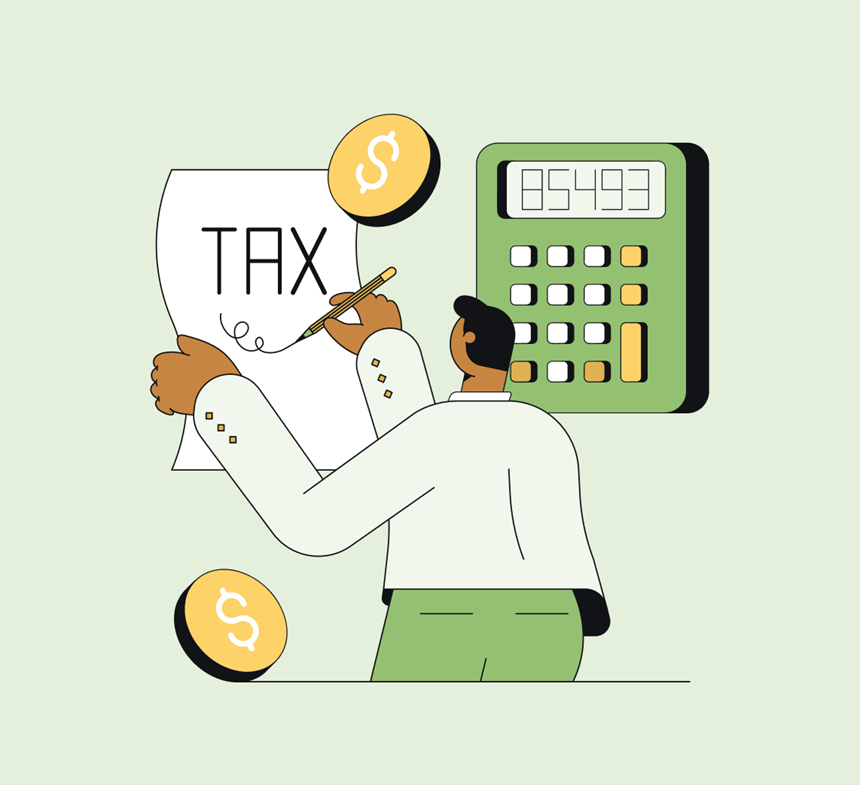So, you’ve set up shop in a coworking space in Pattaya or Bangkok, and life is pretty sweet. You’ve got sunshine, street food, and Wi-Fi fast enough to Zoom with clients around the globe. But then the dreaded question pops up: Where should you pay taxes as a digital nomad in Thailand?
Let’s break it down and dive into some tax strategies for nomads who are working remotely from Thailand, specifically in spots like Pattaya and Bangkok.
As a digital nomad, you probably hop between coworking spaces, cafés, and tropical islands, rarely staying in one place long enough to call it “home.” The problem? Most countries require you to pay taxes if you live there for more than six months, but what if you’re bouncing around Thailand without staying put for that long?
The good news: Thailand, like many places, operates in a tax "grey zone" for short-term digital nomads. If you’re not staying for more than 180 days, you might not be required to pay local taxes, but there’s a catch—you still need to pay taxes somewhere. Here are your options.
The simplest route (even if it’s not the most glamorous) is to keep paying taxes in your home country while you’re working remotely in Thailand. Even if you’re only visiting your home country for a couple of weeks a year, as a citizen, you’re likely still expected to file taxes there.
While this option is convenient (no need to learn a new system or worry about Thai tax laws), it may not be the most tax-efficient choice if you’re looking to optimize your savings. But if simplicity and avoiding paperwork are your main goals, this might be your best bet.
If you’re planning on staying in Thailand for more than six months, things get a bit more official. Once you cross the 180-day mark, you’ll likely be considered a Thai tax resident, meaning you’ll need to report your worldwide income to the Thai government. The income tax rate in Thailand starts at 5% and goes up to 35%, depending on how much you earn.
However, many digital nomads don’t stick around that long, preferring to keep their stays under six months, which allows them to avoid the complexities of Thai tax residency.
Pro tip: If you're planning to base yourself long-term in Thailand, especially in a buzzing hub like Bangkok or Pattaya, you might want to consult a local tax expert to figure out how to minimize your tax liability.
For those who want to enjoy the incredible lifestyle Thailand offers for more than just a few months, the Thailand Elite Visa might be worth considering. It allows you to stay in Thailand for up to 20 years, but it comes with a hefty price tag—starting around 500,000 THB for a five-year membership. While this visa doesn’t automatically make you a tax resident, staying long-term in the country could bring tax obligations.
But hey, if you’ve got the funds and you want to call Thailand your second home without constantly renewing your visa, this might be the way to go.
Thailand is a magnet for digital nomads, and both Pattaya and Bangkok offer vibrant coworking scenes, each with its own perks. Bangkok’s bustling city life comes with loads of coworking spaces, networking events, and fast internet. Pattaya, on the other hand, gives you that laid-back beach vibe while still offering reliable workspaces. Either way, if you’re working online from Thailand, you’ll need to keep tax strategies in mind.
Bangkok: As a major city, it’s easier to find tax consultants or legal experts here who can help you navigate your options. Plus, with the sheer number of expats and nomads, you can network with others in the same boat.
Pattaya: While it’s smaller, Pattaya’s expat community is strong, and you’ll still find some decent resources to guide you through the tax maze. And let’s be honest, who wouldn’t want to work from a beachfront café?
Whether you're coworking in the heart of Bangkok or enjoying the laid-back beaches of Pattaya, managing taxes as a digital nomad can be tricky. If you’re staying under six months, you might get away with not paying Thai taxes—but make sure you’re covered in your home country. If you're thinking about staying longer, it’s worth getting professional advice to make sure you’re not missing anything (or overpaying).
Now, with that sorted, you can get back to sipping iced coffee, catching sunsets, and working remotely in paradise!
